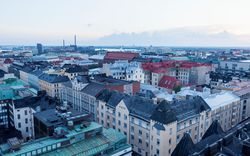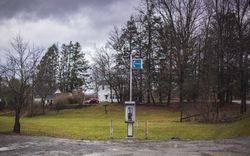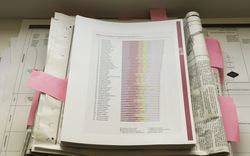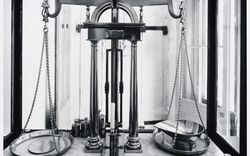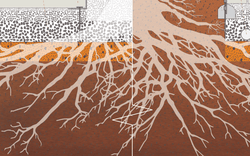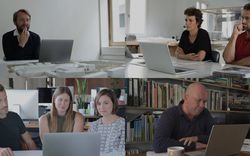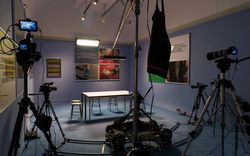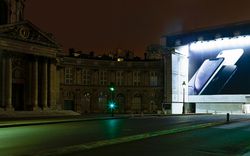What do we do if they want to be happy?
Interviews with Reinier de Graaf, Dirk Somers, Stéphanie Bru and Alexandre Theriot, and Gehl
The exhibition Our Happy Life: Architecture and Well-Being in the Age of Emotional Capitalism begins with the contemporary proliferation of happy indexes and global livability reports that incorporate subjective data on well-being with more traditional data sets. These documents are political media apparatuses that shape our built environment through their influence on decision-making processes. This research has been instrumentalized, naturally, by happiness handbooks: protocols with which one may evaluate and draft design principles, from approaches to sustainability to measures for security, to new conceptions of comfort, and to a new understanding of work-life balance. The ability to track emotions is key to the dynamics that control the neoliberal economy and to the often overwhelming phenomenon of an immaterial and structurally unstable market of “affects.”
Different members of the Our Happy Life curatorial team pose questions on topics encountered during their research. The respondents are four architects and urbanists. How should the role of the architect be revised in this new system of economic and political values? How is architecture work engaging with or resisting the so-called happiness agenda?





Reinier de Graaf, AMO, Amsterdam
Topics include: his book Four Walls and a Roof, which was always on our table during the research for Our Happy Life; the idea of 2008 as a “year zero” for our new interest in happiness, the year Facebook is translated across multiple languages, the year that the iPhone is globally distributed, producing a data boom; and how planning, compressed between powerful private entities and political forces, engages (or doesn’t) with competitive city indexes.





Dirk Somers, Bovenbouw, Antwerp
Topics include: the role of comfort and “hyper comfort” in Bovenbouw’s work; whether they recognize the influence of behavioural economics, data collection, or the experience economy in the practice of architecture today; how their work on public projects from schools, civic buildings, to police stations responds to current ideas of social space, intimacy, and safety; and whether in pursuing happiness we may repeat the mistakes of Modernist overpromising.





Stéphanie Bru and Alexandre Theriot, Bruther, Paris
Topics include: whether the political and economic context of France since the crisis of 2008, just after Bruther was founded in Paris, has defined them; their idea of architecture as “open infrastructure” and how this emerges through different projects, such as student housing in Paris or the Cultural and Sports Centre of Saint-Blaise; how all of this relates to “friction” rather than smoothness; and designing beyond a given program or brief.





Julia Day, Mayra Madriz, Blaine Merker, Anna Muessig, and David Sim, Gehl, New York, San Francisco, and Copenhagen
Topics include: how do new methods of “measuring” happiness compare to the kinds of quantification that the Gehl office has always used; whether rankings-driven competition between cities is a good or a bad thing, from the perspective of an international practice; if Copenhagen is more of a model or a method for them, and how its lessons are applied in other contexts; and if their clients are asking about happiness.
